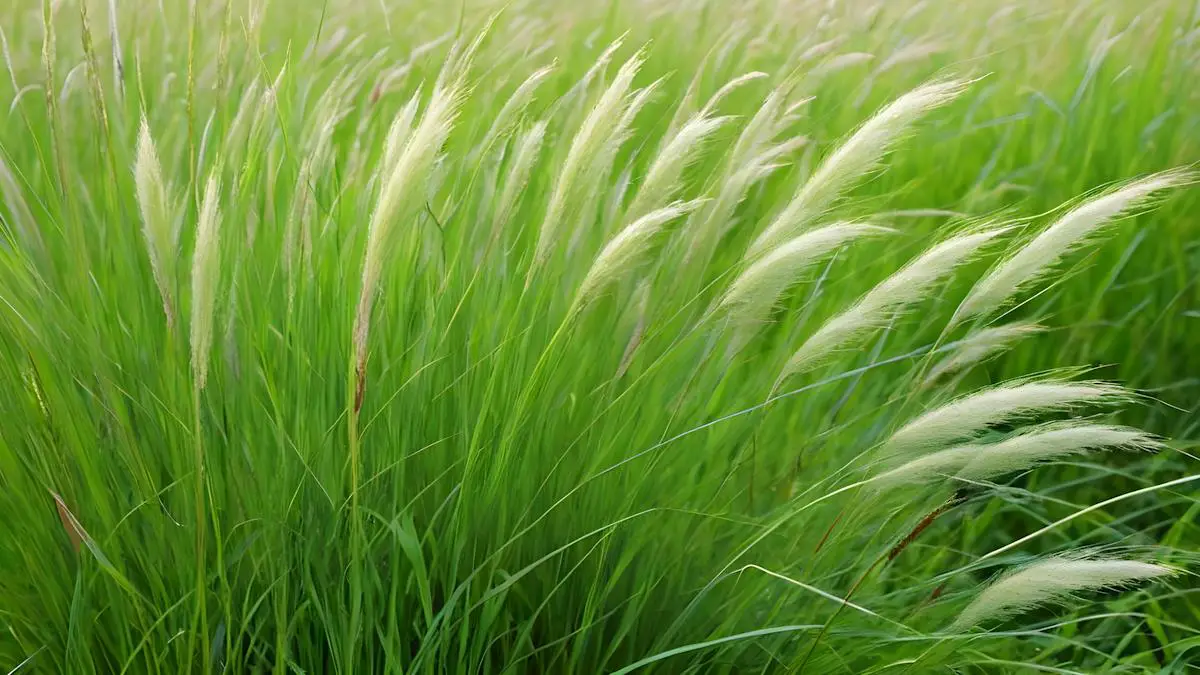Embracing the great outdoors can sometimes come at a cost, and for many, Timothy grass allergy poses a unique challenge. In this article, we delve deep into the intricacies of this common allergic reaction, offering expert guidance, personal experiences, and valuable insights to empower those affected.
I have been a sufferer of timothy (hay) grass allergies for 30+ years and counting. Let’s explore the world of Timothy grass allergy and find solutions to thrive despite nature’s obstacles.

As an Amazon Associate, I may get compensation for qualifying purchases.
Table of Contents
Understanding Timothy Grass Allergy

Timothy grass allergy is a specific type of grass allergy that triggers the immune system to respond to a specific protein found in the grass pollen. This condition affects individuals sensitive to these proteins, leading to a range of allergic symptoms. Understanding the fundamentals of this allergy is crucial for effective management.
Timothy Weed versus Timothy Grass Allergy
Timothy weed and Timothy grass both refer to the identical plant species, Phleum pratense. These terms can be used interchangeably as they denote the same plant.
Additionally, those with a “hay” allergy, are typically allergic to Timothy grass, which is cultivated into Timothy hay.
Timothy Grass Allergy Season

The peak of Timothy grass allergy season typically occurs in late spring and early summer, typically from May to July. During this period, the grass grows rapidly and releases pollen into the air as part of its reproductive cycle. For individuals with a grass allergy, these months can be particularly challenging due to heightened allergy symptoms.
Causes and Triggers of Timothy Grass Allergies
Timothy grass allergies can stem from a variety of factors, encompassing not only pollen allergies but also environmental influences and genetic predispositions. The primary culprit is the pollen produced by Timothy grass. These combined factors contribute to the complexity of Timothy grass allergies, highlighting the multifaceted nature of their causes and triggers.
Pollen is the Primary Cause

Timothy grass releases large amounts of pollen during the flowering season, making it a potent allergen. Inhalation of this pollen can lead to allergic reactions in susceptible individuals.
Environmental factors Play a Role
Environmental factors such as wind and dry, warm weather can exacerbate symptoms by facilitating the dispersal of pollen. Exposure to high pollen counts, especially in areas with extensive grass cultivation, increases the risk of developing Timothy grass allergy. Climate and geographical location also play pivotal roles.
Genetic Predisposition Increases Risk of Timothy Grass Allergies

Genetic predispositions play a significant role, with individuals having a family history of allergies being more prone to developing sensitivities to Timothy grass pollen. Family history can contribute to the likelihood of developing allergies. Individuals with a genetic predisposition may be more susceptible to Timothy grass allergy.
Map of Where Timothy Grass Grows

Timothy grass, or Timothy weed, is commonly found in North America, Europe, and parts of Asia. It thrives in temperate climates and is often found in fields, meadows, pastures, and along roadsides.
Timothy grass is a part of the “Poaceae” family which is found everywhere in the United States, as depicted on the BONAP map.
Recognizing Timothy Grass Allergy Symptoms

Symptoms range from mild to severe and may include sneezing, nasal congestion, itchy eyes, and skin rashes. In severe cases, individuals may experience difficulty breathing and anaphylaxis. Timothy grass allergy symptoms can vary from person to person but commonly include:
- Coughing: Some people may develop a persistent cough as a result of the allergic response.
- Fatigue: Allergic reactions can contribute to feelings of tiredness and fatigue.
- Headaches: Allergic responses may lead to headaches in certain individuals.
- Itchy or Watery Eyes: Irritation of the eyes is a common symptom, often accompanied by itching or excessive tearing.
- Runny or Stuffy Nose: Allergic reactions can lead to nasal congestion or a runny nose.
- Shortness of Breath: Found in more severe cases
- Skin Reactions: In some cases, skin reactions such as hives, redness, or a rash may occur, especially if there is direct contact with Timothy grass.
- Sneezing: Individuals with Timothy grass allergies may experience frequent sneezing as a reaction to exposure.
- Throat Irritation: Timothy grass allergies can cause throat discomfort or irritation.
- Wheezing: can be a symptom of allergic reactions affecting the respiratory system.
It’s important to note that individuals may experience a combination of these symptoms, and the severity can vary. If you suspect a Timothy grass allergy, it is advisable to consult with a healthcare professional for proper diagnosis and management.
Diagnosis and Testing A Timothy Grass Allergy

Efficient diagnosis is pivotal in managing Timothy grass allergy. Explore the various testing methods available, from skin-prick tests to blood tests, enabling accurate allergen identification. Navigating the diagnostic process ensures a solid foundation for crafting a personalized allergy management plan.
Effective Timothy Grass Allergy Management and Prevention
Living with a Timothy grass allergy can present challenges, but there are several strategies to manage symptoms and improve quality of life. The best options for effective management are avoidance, immunotherapy, and medications.
Of course, after reviewing this information, consult with your doctor to get the best-tailored plan to fit your needs.
Avoidance of Timothy Grass

To lessen the effects of Timothy grass or Timothy weed pollen allergies, it’s essential to implement effective avoidance measures. Particularly during the peak pollen seasons of spring and early summer, individuals susceptible to grass allergies can reduce exposure by following these steps:
- Go outside later in the day: most of the pollen is released in the morning.
- Keep your house windows closed: pollen can fit through your window screens, don’t let it inside your home.
- Put on fresh clothes: once you come inside from pollen exposure, change your clothes.
- Shower off the pollen: rinse the pollen off your exposed body, and out of your hair.
- Stay inside on windy days: typically, the windier the day, the higher the pollen exposure
- Use indoor air purifiers: filter out any pollen that you or your pets brought into the home.
- Wear sunglasses when outdoors: sunglasses are like eye shields from pollen.
Foods to Avoid with a Timothy Grass Allergy

If you have a Timothy grass pollen allergy, you may want to be cautious about consuming certain foods that could potentially exacerbate your symptoms or cross-react with the pollen allergen. Some foods that individuals with Timothy grass pollen allergies may want to avoid include:
- Certain grains and cereals like wheat, barley, and rye.
- Fresh fruits and vegetables such as apples, oranges, cherries, kiwis, celery, and carrots.
- Legumes such as soybeans and peanuts.
- Some herbs and spices including coriander, fennel, and parsley.
- Some nuts like almonds, hazelnuts, and walnuts.
These foods may trigger oral allergy syndrome or exacerbate allergy symptoms due to cross-reactivity with proteins in Timothy grass pollen.
However, consulting with an allergist or healthcare provider for personalized dietary advice based on your specific allergies and sensitivities is essential.
Timothy Grass Allergy Medication Considerations

For those experiencing the effects of grass allergies, various medication options exist to alleviate symptoms and enhance daily life. Numerous over-the-counter and prescription medications effectively counteract the release of histamine triggered by exposure to grass pollen.
- Antihistamines: Available over-the-counter or by prescription, antihistamines can alleviate symptoms like sneezing, itching, and a runny nose.
- Decongestants: Oral or nasal decongestants offer temporary relief from nasal congestion, although prolonged use is typically discouraged.
- Eye Drops: Eye drops containing antihistamines or mast cell stabilizers can ease symptoms of allergic conjunctivitis, including itching and redness.
- Nasal Corticosteroids: Prescription or over-the-counter nasal corticosteroid sprays help reduce inflammation and relieve nasal symptoms.
Consider Trying Immunotherapy

Immunotherapy, also known as allergy shots or sublingual immunotherapy, can help individuals with Timothy grass allergies by gradually desensitizing their immune system to the allergens found in Timothy grass pollen.
Is there an allergy shot for Timothy grass allergies?
Yes, allergy shots encompass allergies to Timothy grass or Timothy weed allergies. Following the identification of all your allergies by your allergist, if you have a grass allergy, it will be incorporated into your allergy shot regimen.
The Process
This process involves administering small, gradually increasing doses of Timothy grass extract over 2 – 5 years. By exposing the immune system to small amounts of the allergen, immunotherapy helps to modify the immune response, reducing the severity of allergic reactions to Timothy grass pollen over time.
The Goal of Allergy Immunotherapy
Immunotherapy can lead to a significant reduction in allergy symptoms and improved quality of life for individuals with Timothy grass allergies. I have been getting these allergy shots for a few years now, and they have helped me tremendously.
Personal Strategies: A Journey to Allergy Control

My approach to managing allergies revolves around a combination of avoidance measures, immunotherapy, and natural pollen remedies. Given my fondness for outdoor activities, I must shower and change clothes upon returning indoors, especially during the pollen season.
I also undergo allergy shots, which have reached a stage where I only require seasonal antihistamines for allergies as necessary.
Furthermore, running air purifiers continuously in our home has proven highly beneficial for my family and my allergies.

The two models of air purifiers we are currently rocking from Amazon are the Winix®Plasmawave 5500-2, and the Levoit Core® Mini. You can check out the full Winix review, or hop straight onto Amazon to check the current prices.
Final Thoughts

Timothy grass allergies may present challenges, but by arming yourself with this knowledge and proactive strategies, you can gain the upper hand! Grass allergies don’t stop with Timothy Grass, I recommend you check out “Grass Allergy SOS” for even more tips and tricks this allergy season.
